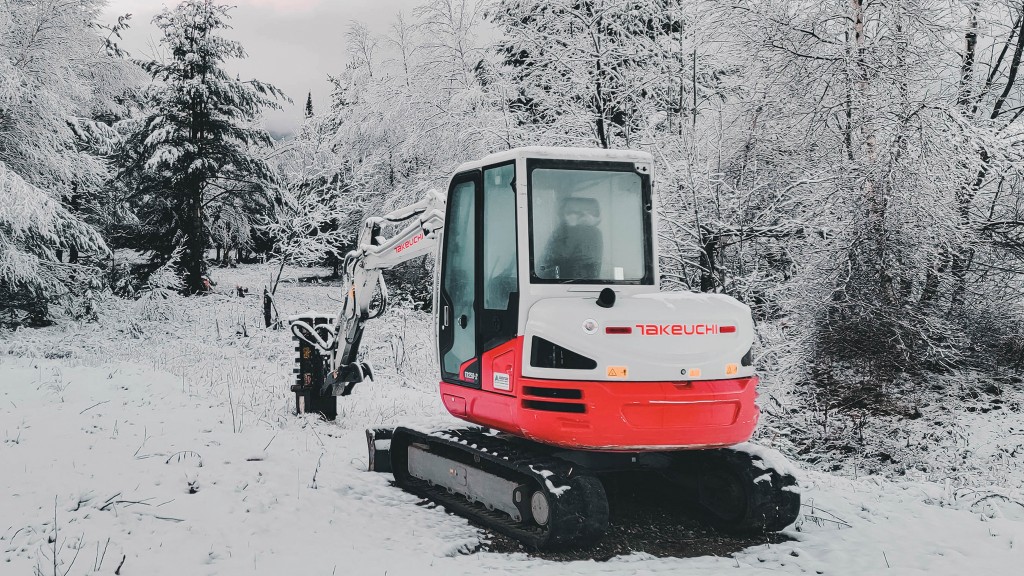Cold Weather Operation: Tips for Efficient and Safe Equipment Use
As winter sets in, construction and earthwork professionals face unique challenges when operating heavy machinery in cold weather conditions. From protecting the equipment to ensuring safety on the jobsite, it's essential to adopt a comprehensive approach to cold weather operation. In this blog post, we will explore valuable tips to enhance productivity, safeguard your equipment, and prioritize safety during the winter months.

Protect Your Machine:
One of the primary concerns during cold weather operation is protecting your machinery from the elements. If storing the equipment indoors is not possible, cover the engine with a weather-resistant tarp to shield it from snow and condensation, which can lead to engine issues.
Manage Productivity:
Cold weather can make the ground harder, affecting roadways and aggregates. Plan your work efficiently, considering the challenges posed by frost. With fewer daylight hours in winter, time management becomes crucial. Prioritize tasks and allocate time wisely to maintain productivity.
Keep the Jobsite Clean:
Maintaining a clean jobsite is imperative during winter. Leaving a layer of snow on the ground when not working can act as insulation, preventing frost penetration. When working, clear all snow and ice to minimize the risk of accidents. Use reflective stakes to mark areas of concern for snow removal crews.
Clean Designated Snow Removal Areas:
Before the snow falls, clean up debris or equipment that might be hidden. Mark potential hazards with reflective stakes to guide snow removal crews away from these areas. This proactive approach enhances safety and efficiency in snow removal operations.
Plan for Earthworks Projects:
Frozen ground can pose challenges, and it's crucial to plan for earthworks projects accordingly. Place frozen chunks of ground in designated areas to prevent water-related issues, such as sinkholes, in the spring.
Use High-Quality Winter Diesel Fuel:
Ensure your machinery is fueled with high-quality winter diesel fuel. The fuel conditioner should match the type of fuel being used and be approved by the manufacturer. This helps maintain optimal engine performance in cold temperatures.
Check Starting Devices:
Regularly inspect and ensure block heaters and cold weather starting devices are in working order. This step is vital to facilitate smooth engine starts in cold weather conditions.
Warm Up the Machine:
Allow your machines to reach operating temperature before starting work. This precautionary measure ensures optimal performance and prevents potential damage associated with cold starts.
Keep a Spare Fuel Filter:
Store an extra fuel filter in the cab and follow the installation instructions in your operator's manual. Having a spare filter on hand can be a lifesaver in case of fuel-related issues during cold weather operation.
Check for Ice Build-Up:
Inspect and clear any ice or snow build-up in the exhaust or intake, if applicable. Regularly check the throttle and brake area for ice or snow, ensuring unobstructed operation.
Warm Up to Improve Steering Response:
In cold temperatures, hydraulic steering on equipment may experience slow response. Allow the machine to idle until it reaches operating temperature to improve steering responsiveness.
Stay Aware of Safety:
Practice three-point contact when mounting and dismounting machines. With snow and ice on the ground, slips and falls are common causes of injuries. Always wear your seatbelt when operating equipment and remain alert to potential hazards.
By implementing these cold weather operation tips, construction and earthwork professionals can enhance equipment performance, ensure jobsite safety, and maintain productivity throughout the winter months. Prioritizing protection, efficiency, and safety will contribute to successful operations in challenging weather conditions.
